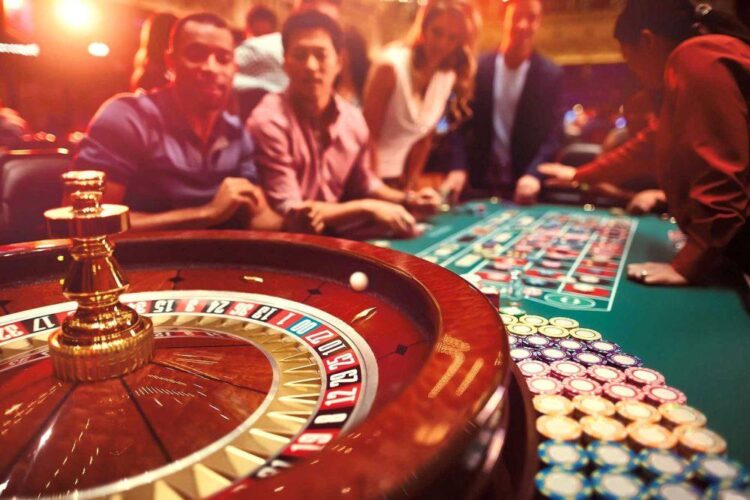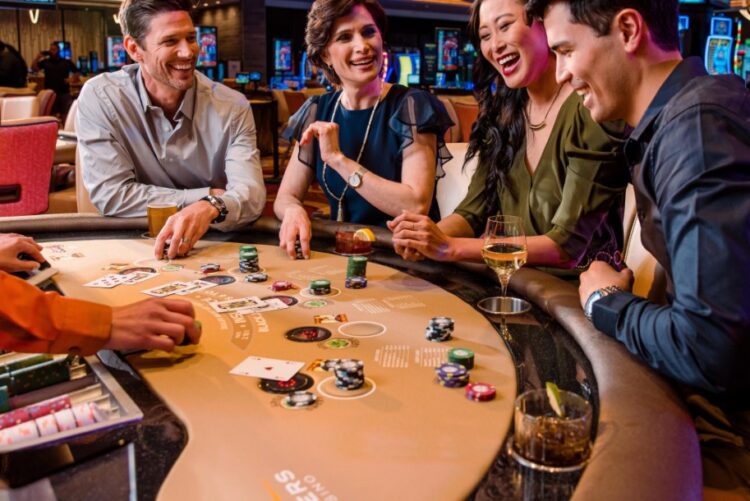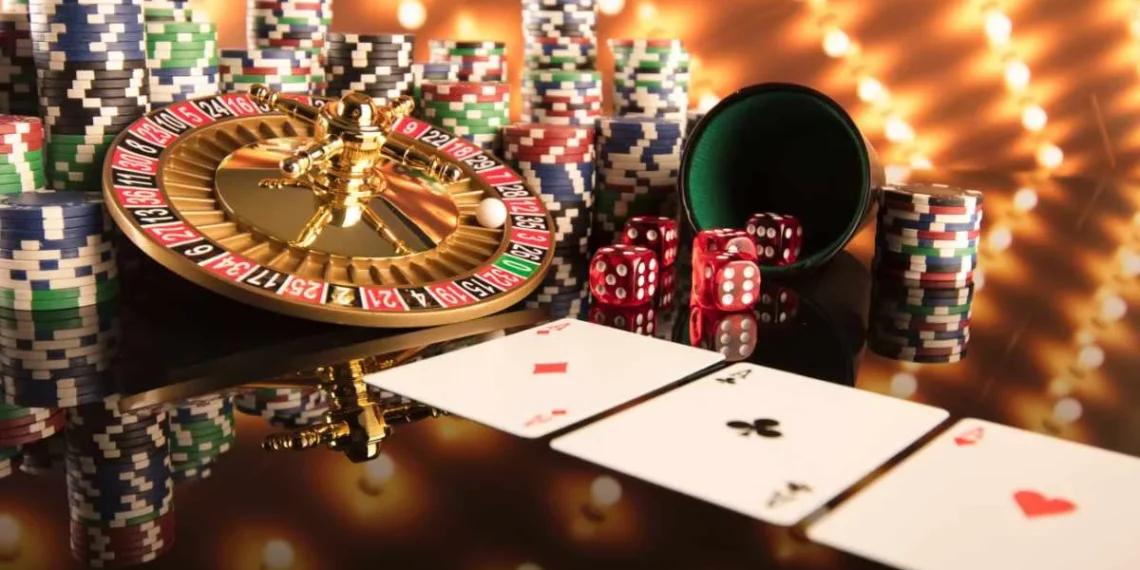High-stakes gambling has always fascinated the public. Whether it’s the dramatic tension of the roulette wheel or the glamorous appeal of slot machines, it’s hard to ignore how gambling weaves itself into our entertainment.
From movies that celebrate daring wins to chart-topping music inspired by risk and reward, casinos shape how we perceive the thrill of the game.
Key Points
- Movies often romanticize gambling but rarely show the losses.
- Music channels the highs and lows of high-stakes bets.
- Casinos treat high rollers differently from regular players.
- Betting psychology affects the decisions of both winners and losers.
- The casino’s cultural impact goes beyond just entertainment.
Do High Rollers Have Better Odds?
Popular culture loves portraying high rollers as untouchable. Think of the suave characters walking into luxurious gambling halls, winning millions with a single hand. But do they really have better odds? Not quite.
High rollers might play with larger amounts, but the odds remain the same. They rely on calculated risk-taking and intuition, just like smaller players. The house advantage doesn’t shrink for anyone. What changes is the level of comfort high rollers enjoy — VIP rooms, dedicated staff, and even free luxury stays. Their treatment creates the illusion of control over their odds, but the math always favors the house.

How Do Casinos Treat High Rollers?
Special treatment for high rollers is no secret. Exclusive lounges, gourmet dining, and personal hosts are part of the deal. High-stakes gamblers are also known for the incentives offered to keep them loyal.
If you’re looking to explore a platform that caters to gamblers, Casino 168 offers unique opportunities. From slot games to live dealers, it combines variety with convenience. With services available around the clock, it’s clear why it has gained popularity among players.
Casinos know the value of their high rollers. They make sure to maintain the illusion of winning streaks with lavish rewards. The aim is simple: keep them betting.
What’s the Psychology of Betting Big?
Why do people risk so much in gambling? The psychology behind it is fascinating. Every bet taps into human emotions — hope, fear, and greed. For high rollers, the stakes amplify those emotions, leading to bold decisions that look fearless but are often impulsive.
Studies reveal that betting triggers the brain’s reward system, creating a temporary high. That rush keeps people coming back, even after significant losses. This phenomenon, known as the “gambler’s fallacy,” convinces players they’re due for a win if they’ve lost several times in a row.

How Movies Shape Our View of Gambling
Movies glorify the thrill of gambling. They show underdogs winning against all odds and mastermind schemes unfolding in luxurious casinos. Films like Casino Royale and Ocean’s Eleven highlight the glamour, but rarely the harsh realities.
The cinematic portrayal is compelling but unrealistic. The focus on the charm of victory overshadows the financial risks involved. Few scenes dive into the emotional toll gambling takes or the losses incurred before any major win. By painting an incomplete picture, movies contribute to the allure without addressing the consequences.
Does Music Romanticize Gambling?
Music reflects the emotions tied to gambling. From Elvis Presley’s Viva Las Vegas to Kenny Rogers’ The Gambler, lyrics explore themes of luck, risk, and reward. Artists use gambling as a metaphor for life’s uncertainties.
The rhythm of gambling-inspired songs often mirrors the highs and lows of placing bets. Some tracks celebrate the thrill of winning, while others focus on the despair of losing it all. Music captures the essence of gambling in a way that connects emotionally with listeners, reinforcing its cultural significance.
How Gambling Culture Impacts Society
The influence of gambling extends beyond entertainment. It shapes how people perceive risk and reward, often encouraging risky behavior. Popular culture tends to glamorize the lifestyle associated with gambling, making it seem more appealing than it truly is.
However, the reality is far less glamorous. Gambling can lead to addiction, financial ruin, and strained relationships. While high rollers and lucky winners make headlines, the average bettor rarely walks away with a fortune. The cultural narrative often ignores the struggles, focusing instead on the success stories.

Does the Media Distort Gambling?
The media plays a significant role in shaping public perception. Shows and films often exaggerate the lifestyle associated with gambling, portraying it as a world of endless excitement and wealth. The reality, however, is starkly different.
Gamblers face high risks, and the odds are rarely in their favor. The media’s tendency to glamorize gambling leads many to underestimate the challenges and overestimate the rewards. While it creates compelling narratives, it also feeds misconceptions about what gambling truly entails.
The appeal of gambling will always remain, fueled by the stories, myths, and cultural symbols created around it. By recognizing both the allure and the risks, people can approach gambling with a clearer perspective. It’s not about avoiding the game but understanding the stakes.








